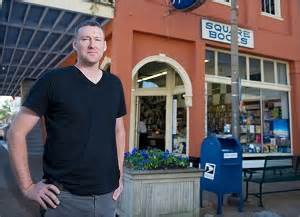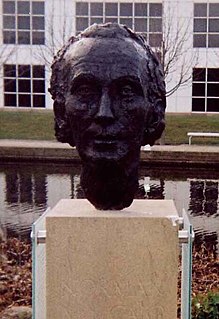A Quote by Wim Wenders
The reason I never wrote a novel is that I don't have what it takes to write characters, so they would all be talking differently. I lack that ability. If I were writing, they would all talk like me, and that's no good.
Related Quotes
I would like to write a novel, or at least try to write one, although my motives are not entirely pure. For one thing, I get asked about writing novels so much that I feel guilty about never having written one. And although I have no strong desire to write a novel, I would hate not to try. That would just be silly. On the other hand, I hate the idea of slogging through something that turns out to be not good.
I write less about alcohol, less and less and less. You 're an addict - so of course you write about the thing you love most. I loved alcohol the most, loved it more than anybody or anything. That's what I wrote about. And it certainly accounted for some great writing. But it accounted for two or three years of good writing - it would never account for 20 years of good writing. I would have turned into Charles Bukowski. He wrote 10,000 poems and 10 of them were great.
As a journalist, I would talk to writers, directors, creative people, and discover that for an awful lot of them, the moment they became successful, that was all they were allowed to do. So you end up talking to the bestselling science-fiction author who wrote a historical-fiction novel that everybody loved, but no one would publish.
It's tricky because Instagram is not Grindr. I'm always trying to show my good side. I never complain. When I have a moment of sadness, I make sure no one ever sees. And while I'm so good at talking to friends or talking about my job, if you were to ask me to dinner - just the two of us, in a romantic way - I would be the worst. I'm so shy I would not talk.
Many writers will get a contract by selling chapters and outlines or something like that. I wrote the entire novel, and when it was all finished, I would give it to my agent and say, 'Well, here's a novel; sell it if you can.' And they would do that, and it was good because I never had anyone looking over my shoulder.
I would argue, for perspective's sake, that the arc of a really literary work is precisely that it both intensely reflects, and simultaneously transcends the conditions of its making. I would say that is the difference between literature and other kinds of writing. That is what the literary is - it ultimately doesn't matter what his circumstances were. And the thing that you were just saying about being sympathetic to Brontë and the fact that she could only write what she wrote when she wrote it... that's true. But look at that novel, which means so much to so many people.
I don't think about the reader in any conscious way that impacts the writing, as far as, Hey, most readers would like this! But at the same time, if it were presented to me: "John, you're going to write a novel. It's going to take you a few years. When you're done with it, there's a law that no one's allowed to read it." I don't think I would write it. I want someone to read it!
I used to write songs that mimicked other songs that I would hear as a kid, cos I was 12 years old when I was writing those, right. And you hear a radio so all I'd write about was [sings] "hey girl, look at you", you know what I mean. I think that even doing that made it easier for me to write non-personal songs because, from a kid, I never wrote personal songs, they were always like mimicking. And now I'm just trying to understand my writing and where it's coming from.
I've never written anything that I haven't wanted to write again. I want to, and still am, writing 'A Few Good Men' again. I didn't know what I was doing then, and I'm still trying to get it right. I would write 'The Social Network' again if they would let me, I'd write 'Moneyball' again. I would write 'The West Wing' again.
When I was fifteen I wrote seven hundred pages of an incredibly bad novel - it's a very funny book I still like a lot. Then, when I was nineteen I wrote a couple hundred pages of another novel, which wasn't very good either. I was still determined to be a writer. And since I was a writer, and here I was twenty-nine years old and I wasn't a very good poet and I wasn't a very good novelist, I thought I would try writing a play, which seems to have worked out a little better.
I saved letters from my boss. There are things in there that are directly transcribed. I was so glad I did that. Sometimes when I was writing the book I wondered if some little writer hobbit part of my brain was back there puppeteering that action. But it really never, on any conscious level, occurred to me that I would write about it. I will say, I thought probably some day there would be an ancillary character in some novel - not in the one I was currently writing - that would be a dominatrix or something.






































